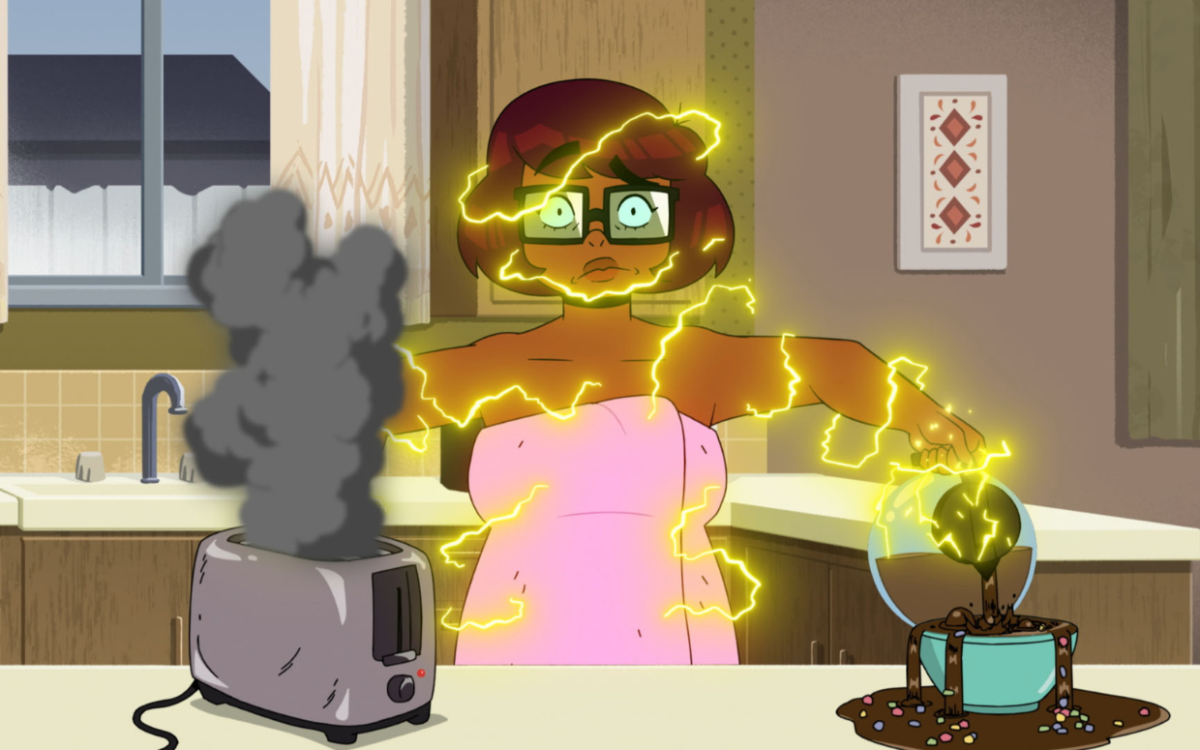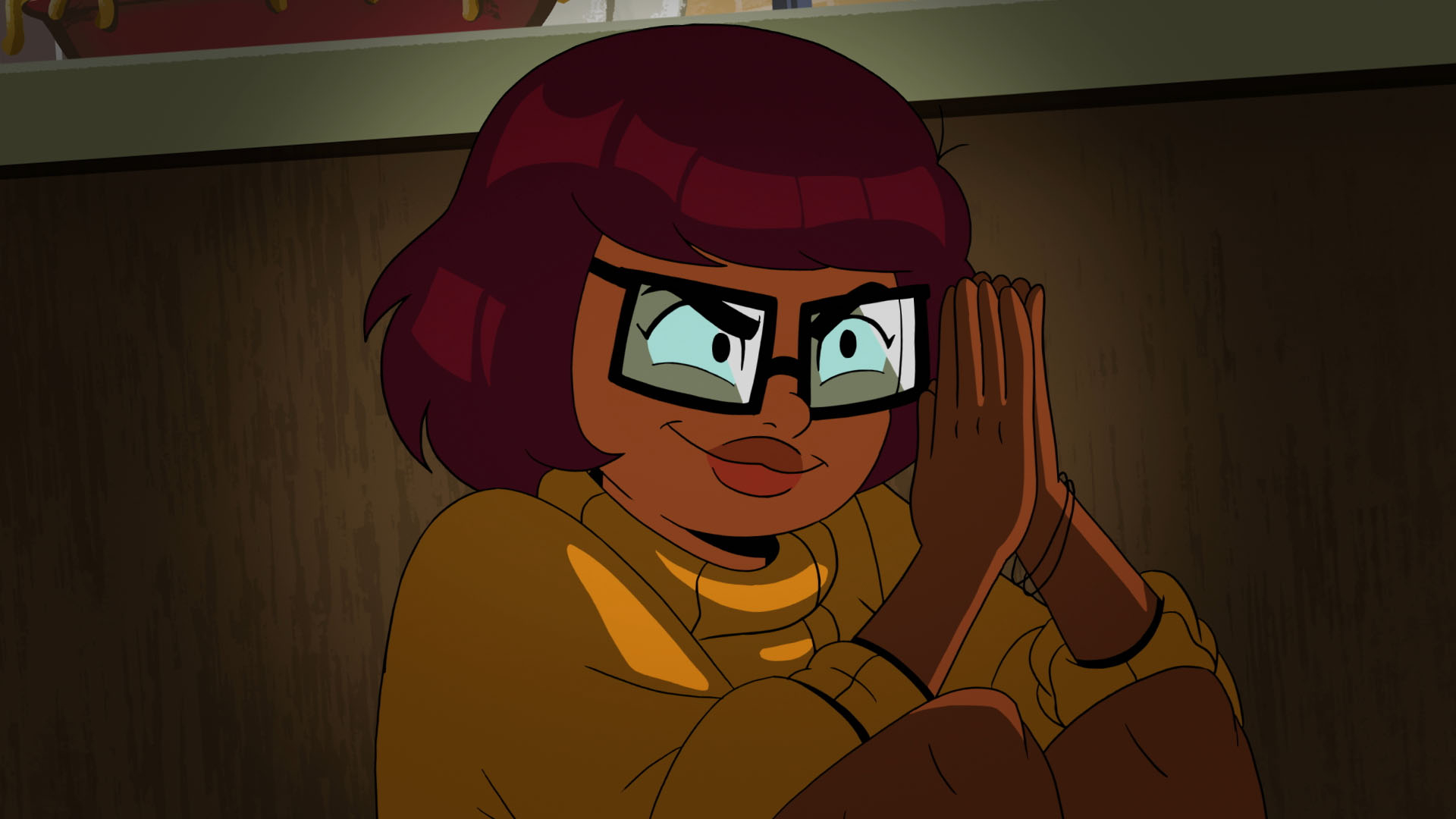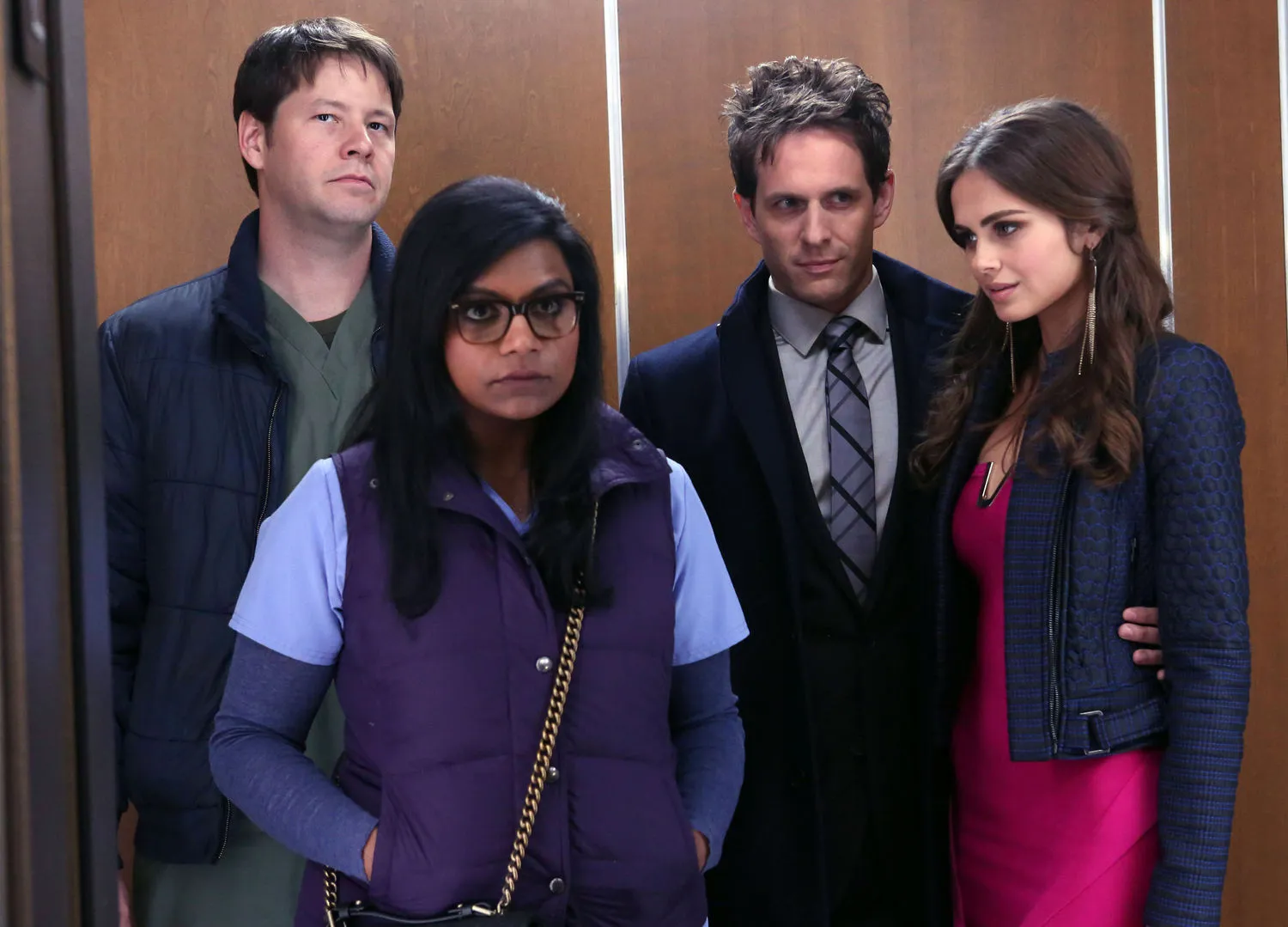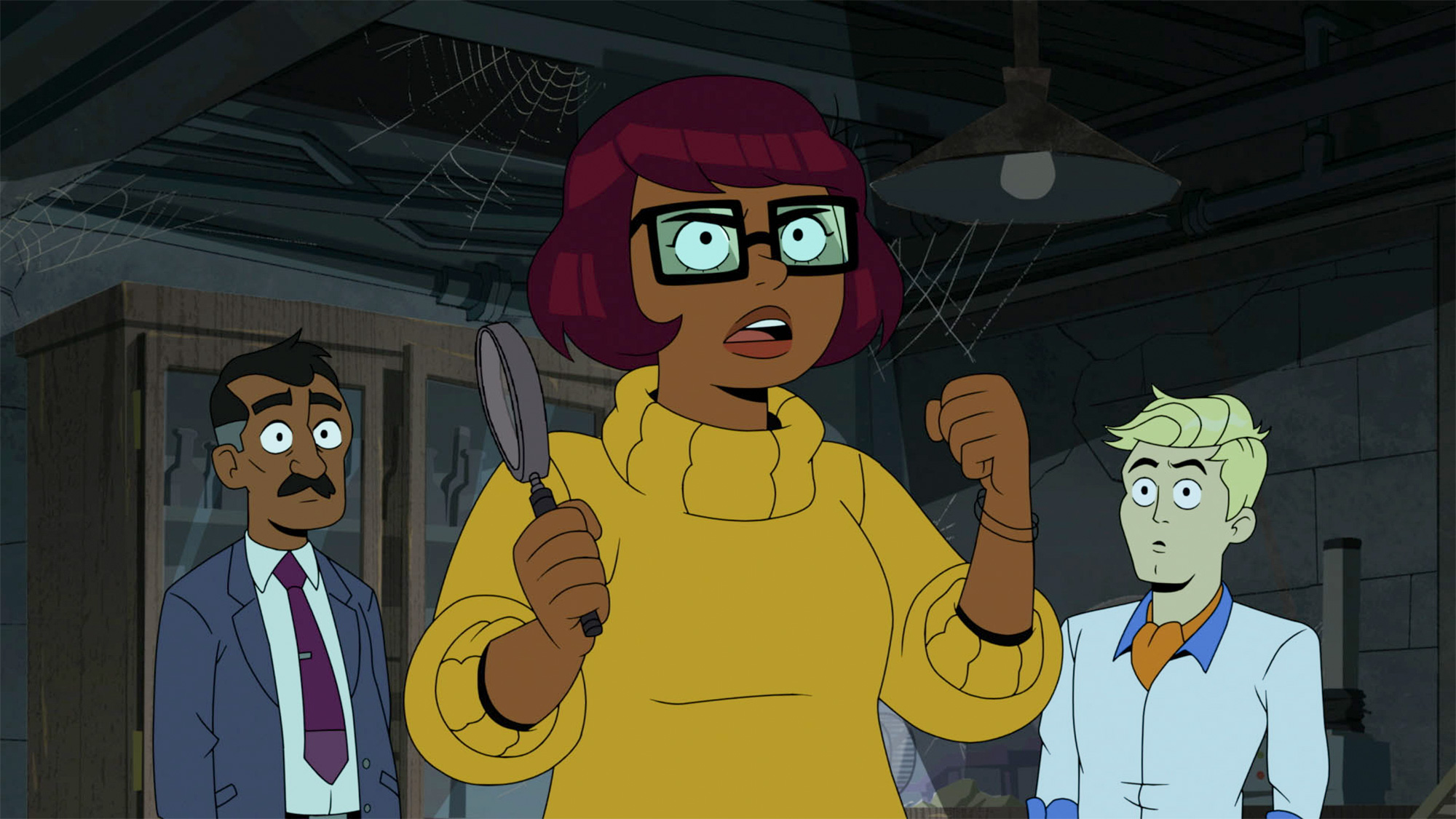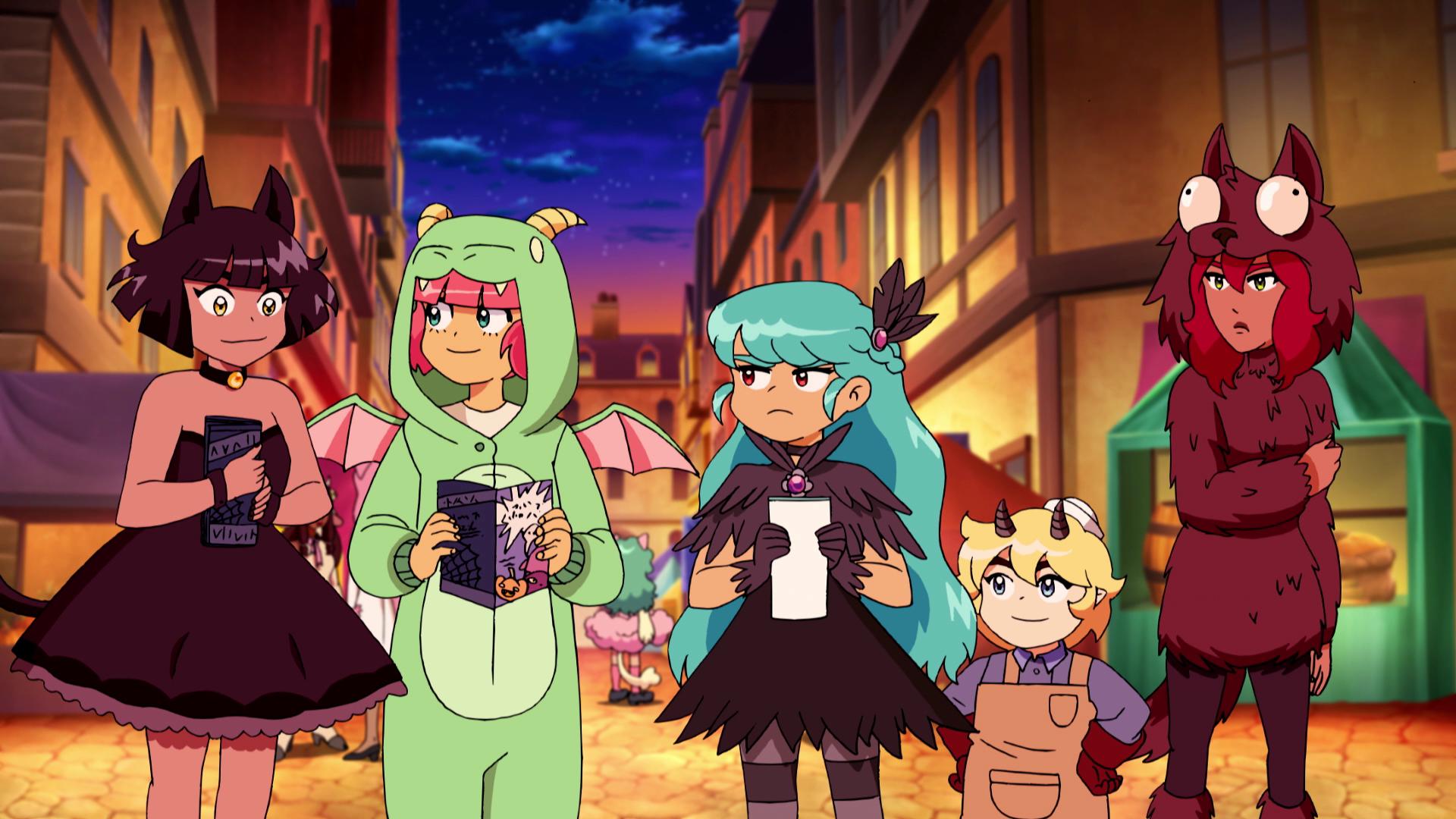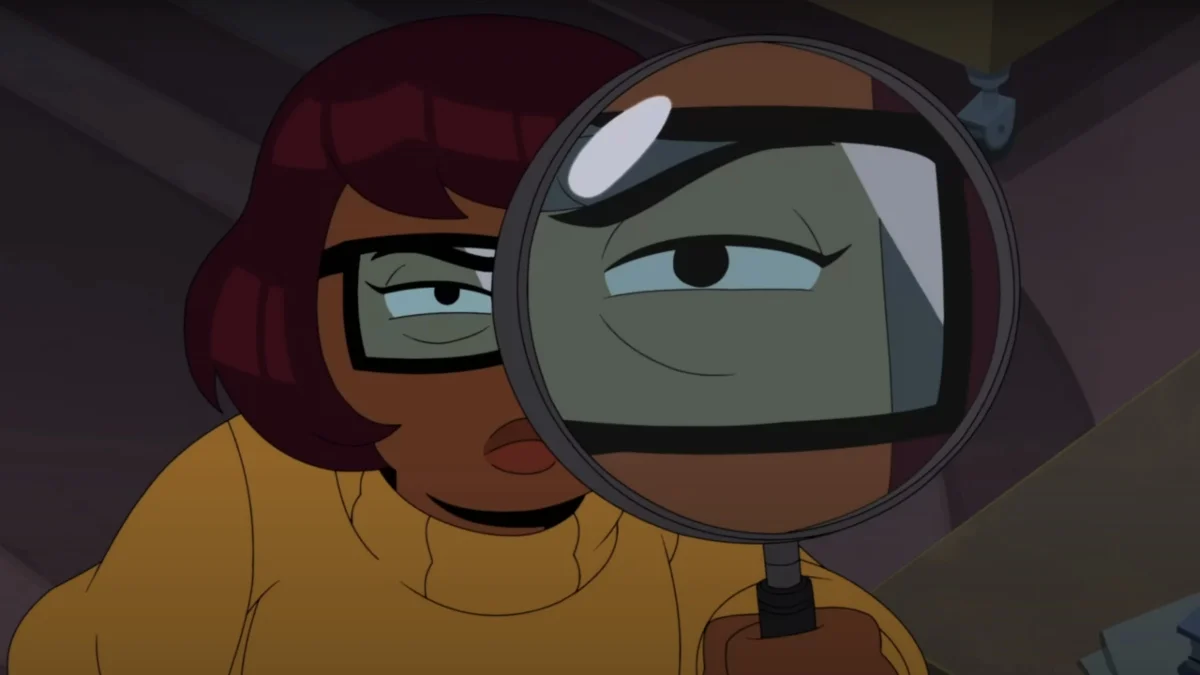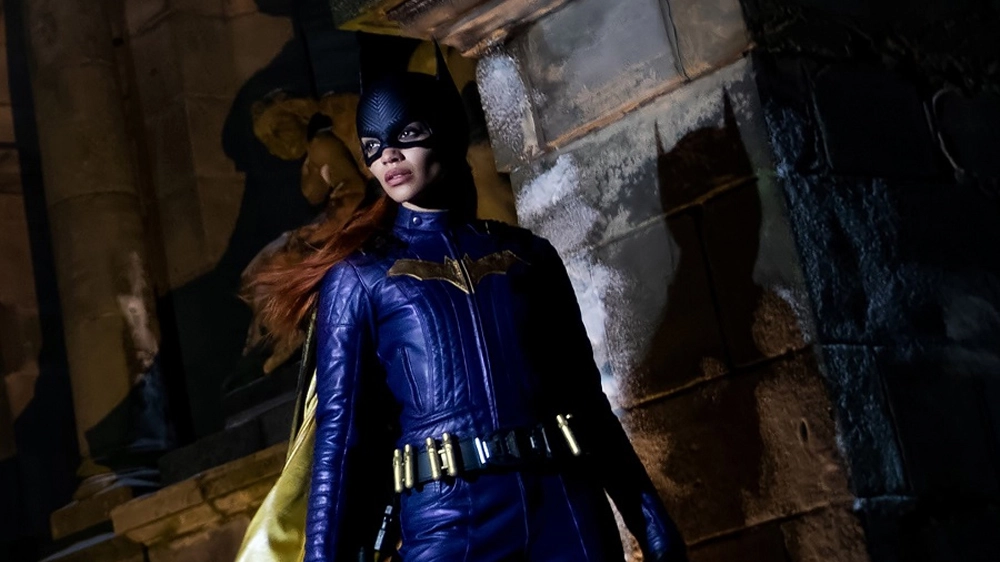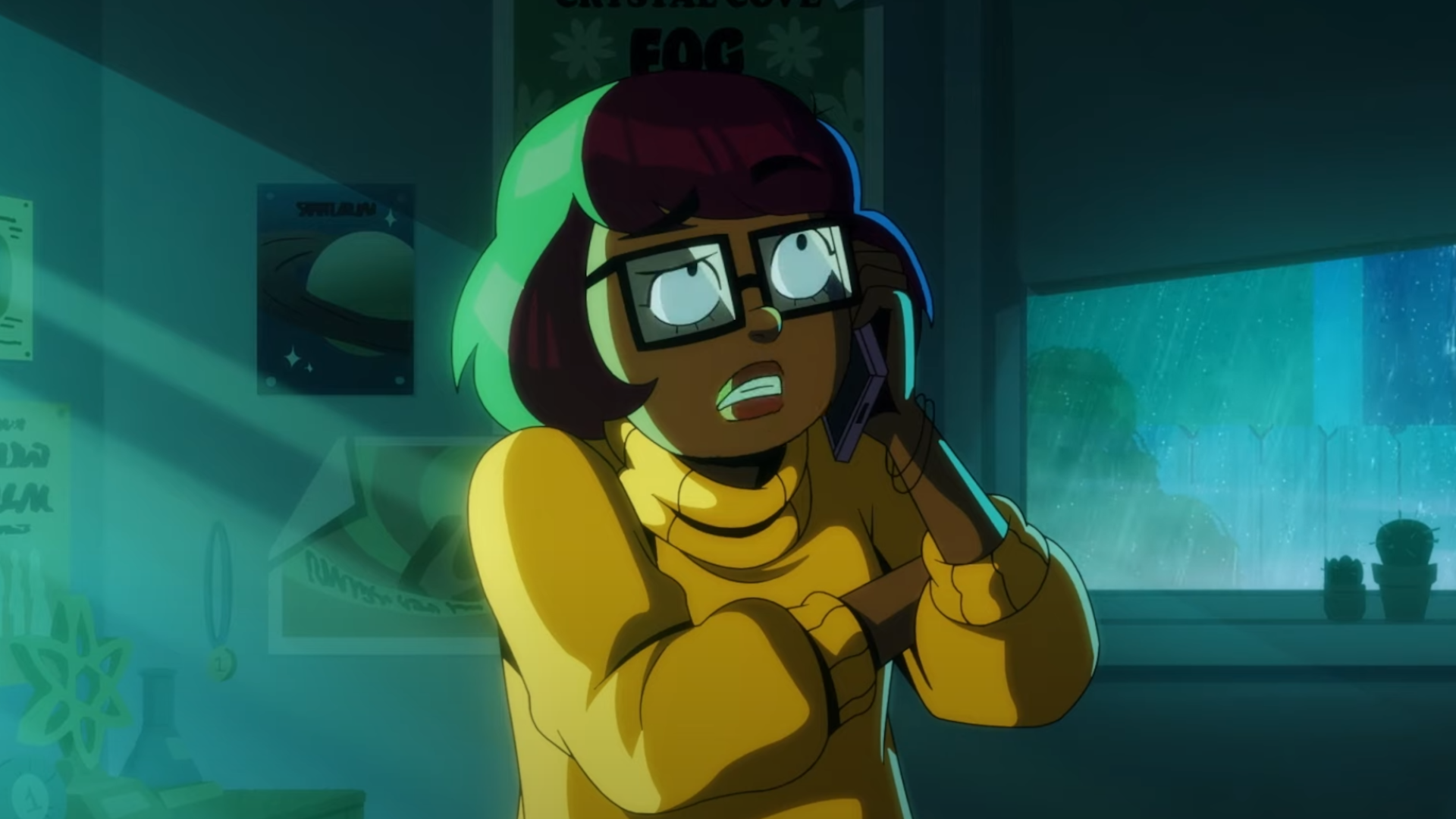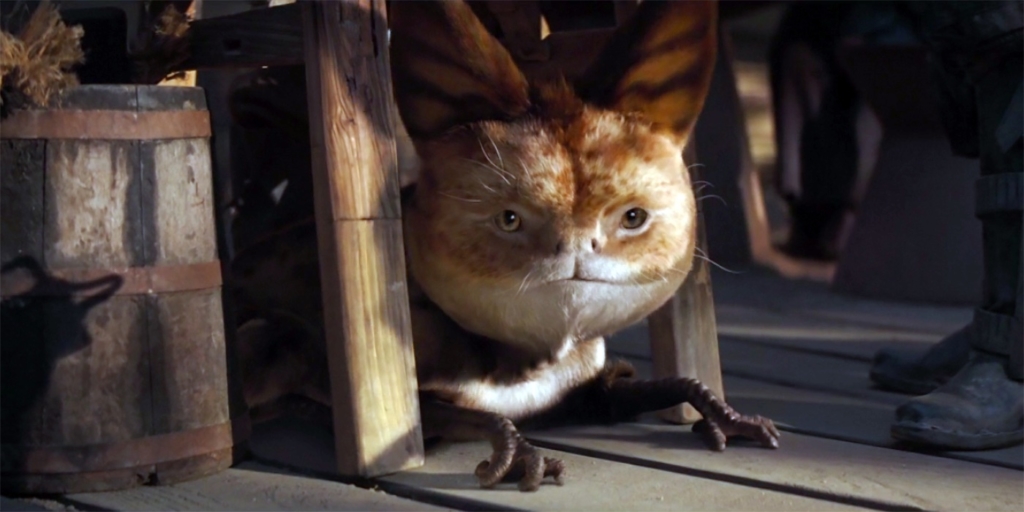HBO’s ‘Velma’ Has the Internet in an Uproar – For Really Wild Reasons
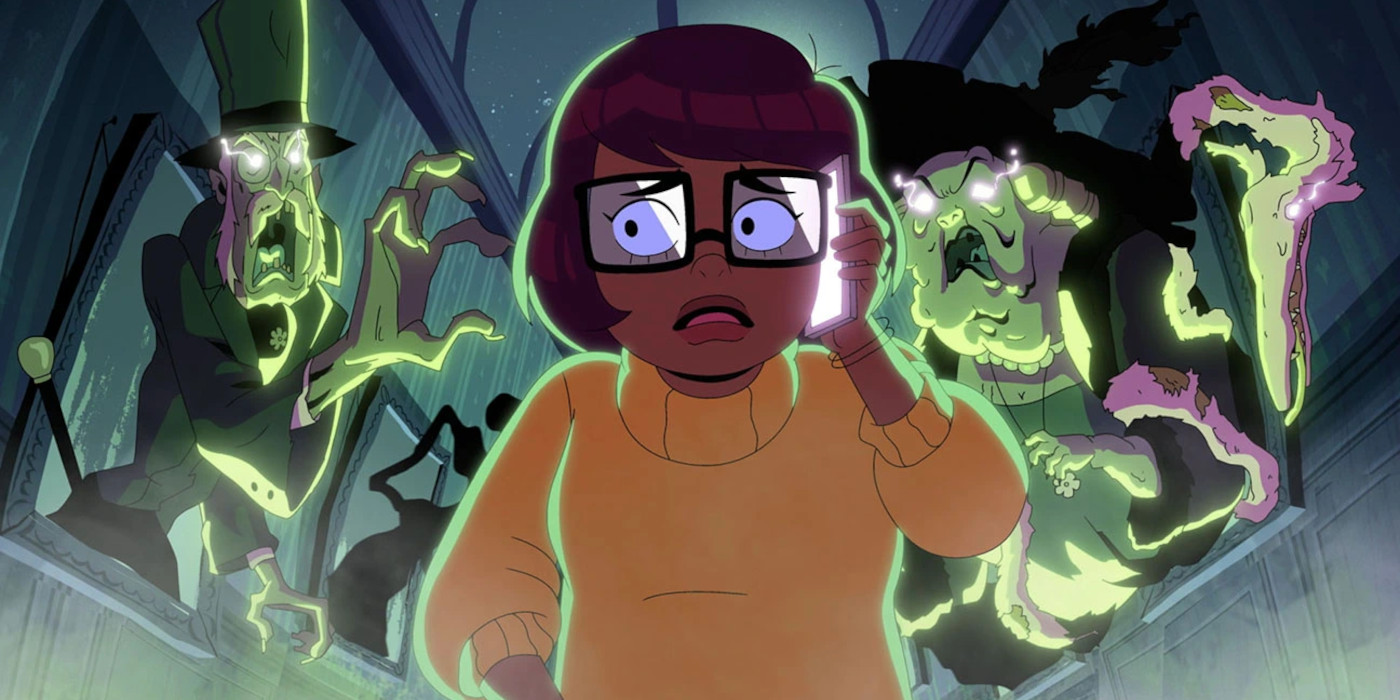

New Scooby-Doo series Velma is wildly unpopular. What’s interesting isn’t that it’s unpopular, it’s the specific discourse surrounding it.
This feels like the beginning of a Jay Leno era Tonight Show monologue joke, but have you heard of this Velma show? You heard about this, folks? It’s an adult-themed animated series based on the titular Scooby-Doo character Velma Dinkley. Voicing Velma as well as producing the series is The Office alum, Mindy Kaling.
The first two episodes of Velma are available to watch via HBO Max as of this writing. Marketers behind both Velma and HBO Max want people to know that a lot of people are watching the series. However, the catch is that most people talking about the show online hate Velma. Like, they hate Velma a lot.
New entries for beloved IP featuring minority voices often face online backlash. If the headline were “the same guys on YouTube who hate everything also hate Velma,” we’d have nothing new to discuss. However, the hate for Velma is widespread. More than that, the chatter surrounding Velma marks a direction for media discourse which may mark a significant change in the direction of media criticism as a whole going into 2023.
There’s a lot of information to disseminate, so let’s take a look at how we got here.
Where Velma‘s Initial Announcement Fits Into the Playbook
On February 10, 2021, Velma gets its first announcement. At this point, we know Mindy Kaling is both producing and starring in the series. In an interview with Seth Meyers in July of that same year, Kaling says response to the series is positive right up until Velma’s ethnicity gets announced. Velma is Indian, and, yes, the same people who always hate when legacy characters go from being white to being literally anything else react very badly.
This response is very par for the course by now. The playbook of steady online harassment to inhibit success for new, “woke” entries into established media is old hat. This behavior pattern takes center stage beginning with the response to the all-women Ghostbusters in 2016. “Get woke, go broke.” That’s the ethos.
For better or worse, media criticism adapted to this segment of “fandom”. In the case of Ghostbusters, the obvious is known right away: harassing actors is wrong. Presuming the movie will be bad before anything has been shot is unreasonable.
However, there is a larger question that takes longer to handle: what if Ghostbusters is bad? And in the nearly 7 years since the 2016 Ghostbusters saw theatrical release to a wildly tepid response, the answer to that question has become pretty obvious. If Ghostbusters (or any other “woke” entry into an existing IP) is “bad”, that is not a big deal! The issue is not whether a project is good or bad, the issue is the people creating a frontlash and their intentions.
This is also true for Velma. Everything Velma goes through prior to its launch is basically the same as what happened in 2016 with Ghostbusters. But that’s not the whole story. Because once Velma‘s first two episodes drop, the conversation mutates.
Is Velma “Bad On Purpose”?
To begin, there is not much debate online regarding the quality of Velma. The overwhelming majority of people talking about Velma do not seem to like it. Whether or not that means Velma is “bad” is immaterial. What makes this situation different and noteworthy is that some people seem to think Velma is bad on purpose.
In a tweet from January 13, 2023, with 1.2 million views (as of this writing), @OneRadChee writes, “the showrunner of “velma”, mindy kaling, is both a transphobe and said that you couldn’t make ‘the office’ today because cancel culture. she’s a fellow reactionary. she deliberately made “velma” suck so the culture war youtubers make a million videos about it to boost its SEO.”
We’ll circle back to the transphobia accusation against Kaling later, but let’s first focus on the idea that Velma is deliberately bad. So the basic argument here is that HBO Max will get more flies with shit than they will with honey. In other words, if people generate more content when they hate something, why not lean in? Why not make something designed to be hate-watched?
The flaw in this thinking is obvious: plenty of critical darlings with “diverse” casting still get hate. Review bombing happens regardless of the quality of the media, so there’s no cause to intentionally make something “bad” in order to make a project more successful on a profitability scale.
But what if Velma is “bad on purpose” to undermine “woke” media?
Accusations Against Mindy Kaling
On October 13, 2022, Mindy Kaling liked a tweet from transphobic author JK Rowling. The tweet was Rowling’s response to someone asking how she can sleep at night knowing she’s lost an audience over her views. Rowling tweets “I read my most recent royalty cheques and find the pain goes away pretty quickly” – and Kaling liked that tweet. Now some people believe Mindy Kaling is transphobic.
Between liking Rowling’s tweet and the release of Velma there is more digging into Kaling’s views on trans people. In the initial release of Kaling’s memoir Is Everyone Hanging Out Without Me? (And Other Concerns) in 2011, she includes a passage where she uses a slur for transgender women. Notably, the slur is not present in any subsequent releases of the memoir.
Additionally, a tweet with 6.4 million views from Farah Sedek is also making the rounds showing a clip from The Mindy Project where Kaling’s character Dr. Mindy Lahiri says she wants more wealthy white patients. The Mindy Project is a work of fiction and Mindy Lahiri often displays immorally selfish behavior which the audience is supposed to understand is wrong. Whether or not this type of representation is “good” or “bad” is for another article, but that debate is happening.
Bigotry among creatives in positions of power crafting the shape of modern media exists. This kind of analysis will not (and should not) go away. The accusations making the rounds against Kaling currently are not the strongest, however, they are in the ether. And that brings us to the type of argument we anticipate seeing more of in 2023.
Is Velma Black Propaganda?
Let’s talk about black propaganda, a thing that very much exists. The goal of black propaganda is to make a group look bad by pretending to be a member of that group and behaving in a way that discredits said group. For example, during World War II, a false character called “Der Chef” was created by the British. Der Chef was a fake Nazi extremist calling out actual Nazis for supposed corruption, sexual deviance, et cetera. Der Chef made Nazis question their own movement.
Juxtaposed to now, there are accusations that Velma is also black propaganda. In essence, the argument is that Velma pretends to be “woke” but actually espouses an opposing ideology. The accusation also suggests that the goal is to make diverse media look bad so as to discredit non-white creators, reduce the desire for “diverse” media, and thus reinforce white supremacy in modern media.
To get the obvious out of the way, this is a huge accusation about Velma with no substantive evidence to back it up. However, facts are not the only elements of the debate, online or otherwise. Black propaganda exists. And black propaganda could effectively have a negative impact on ongoing attempts to place more diverse creators throughout media.
Regardless of whether or not Velma is black propaganda, the question is out there. Even if people ultimately say, no, Velma is not black propaganda, asking this question about “diverse” media going forward may become more common. But that is not the only debate circling around Velma shaping media criticism. There’s one more conversation worth mentioning.
High Guardian Spice and Sacrificial Trash
In October of last year, YouTubers Sarah Z and Lady Emily released a video with the title “Sacrificial Trash“. The video analyzes the online response to another animated series called High Guardian Spice. High Guardian Spice is a fantasy series with a transgender man at the helm and features queer characters, trans characters, and people of color. It is also, in the opinion of most anime (and animation fans in general) not very good.
Sarah Z and Lady Emily’s video grants High Guardian Spice a specific term: “sacrificial trash”. Because High Guardian Spice features both a creative team and characters who are “diverse” the series gets a lot of hate. A lot of the hate for High Guardian Spice appears long before the series even releases because of its diversity and for no other reason.
Elements of High Guardian Spice (voice acting, writing, animation) see criticism unrelated to attacks on “diversity casting”. As a result, YouTube videos attacking the series which intend harm due to the show’s diversity gain traction with people who just don’t like the show for innocuous reasons. Essentially, because High Guardian Spice “is bad” white propaganda against diverse creators and projects that would otherwise be rejected is let through the gates like so much Trojan Horse.
Attacking a project as “bad” without taking into account bad faith criticism risks giving bad faith criticism more purchase in ongoing media conversations. And that brings us to the other side of the Velma debate.
Is Velma Sacrificial Trash?
There are only two episodes of Velma available to watch on HBO Max as of this writing. It is difficult to discern the overall quality of a ten-episode season based solely on one-fifth of it. Is the show good so far? As someone who likes (but does not love) Scooby Doo and whose opinion of Mindy Kaling is “she’s fine”, I personally classify Velma as real C- entertainment. I do not believe the volume of criticism matches the degree of the show’s weaknesses thus far.
The jokes do not seem to hit with teenagers online, ostensibly an audience Velma courts as a show about teens. The lack of Scooby-Doo himself, likewise, unsurprisingly seems to dissatisfy legacy fans. There are #MeToo jokes which are destined to be divisive. “Mature” jokes about Fred Jones’s genitals abound. If one suggested that the audience for such a Scooby-Doo series is limited, I think that would be fair.
But the criticism against Velma is extreme, especially after only two episodes. And that is enough to suggest that the show is sacrificial trash. Certainly, the criticism against Velma continues the ongoing media conversation about sacrificial trash and its effects in general.
Twitter, HBO Max, and the Disintegrating Online Media Landscape
The conversation concerning Velma, black propaganda, and sacrificial trash feels big and complicated – and it is! But that is a conversation from the bottom up. And this conversation is incomplete without discussing the changes happening from the top down as well.
HBO Max is in the news a lot. In 2022, the streaming service decided to never release Batgirl, a movie which whose production was complete, purely to save money. A big part of the dialogue and criticism surrounding the decision is the fact that Batgirl is played in the film by Leslie Grace Martínez, a Dominican-American actress. HBO Max owners also removed programming from the platform unavailable anywhere else as a money-saving measure.
Twitter is also in the news a lot, primarily due to its current owner, billionaire Elon Musk. Some actions taken by Musk as head of Twitter so far: reinstating a number of conspiracy theory accounts, making transphobia no longer a bannable offense, and firing much of the Twitter staff to save money.
In short, decisions made by major streaming and social media platforms in 2022 erode faith in both into 2023. Questions concerning why people in power choose active harm against creators and their own brand invite layers of scrutiny. And with fewer barriers between propaganda, conspiracy theories, and actual facts, all three mix in ways that one is hard to discern from the others.
Media Discourse in 2023
The discourse around Velma is a road mark. It tells us where we are and where we’re heading. Prior to this moment, the dialogue is complex but discernable. When angry YouTube videos attack Star Trek, Star Wars, Doctor Who, or any other IP because of “diversity” it’s easy to tune it out. That this is a part of our media landscape is not great. But after nearly a decade of contending with bad actors on that level, we’ve all essentially adapted.
This question, is Velma sacrificial trash or black propaganda, is something new. This debate represents more than just doubting the motivations of creators of TV shows. Trying to discern whether or not a piece of media is actually a secret attempt at undermining minority voices betrays a greater erosion in trust than we’ve seen in the past.
What does that erosion in trust mean? How will we adapt? And what will the net result of this debate be? That is unknown. But this is the current shape of media discourse in 2023 whether we like it or not, so adapt we must.

